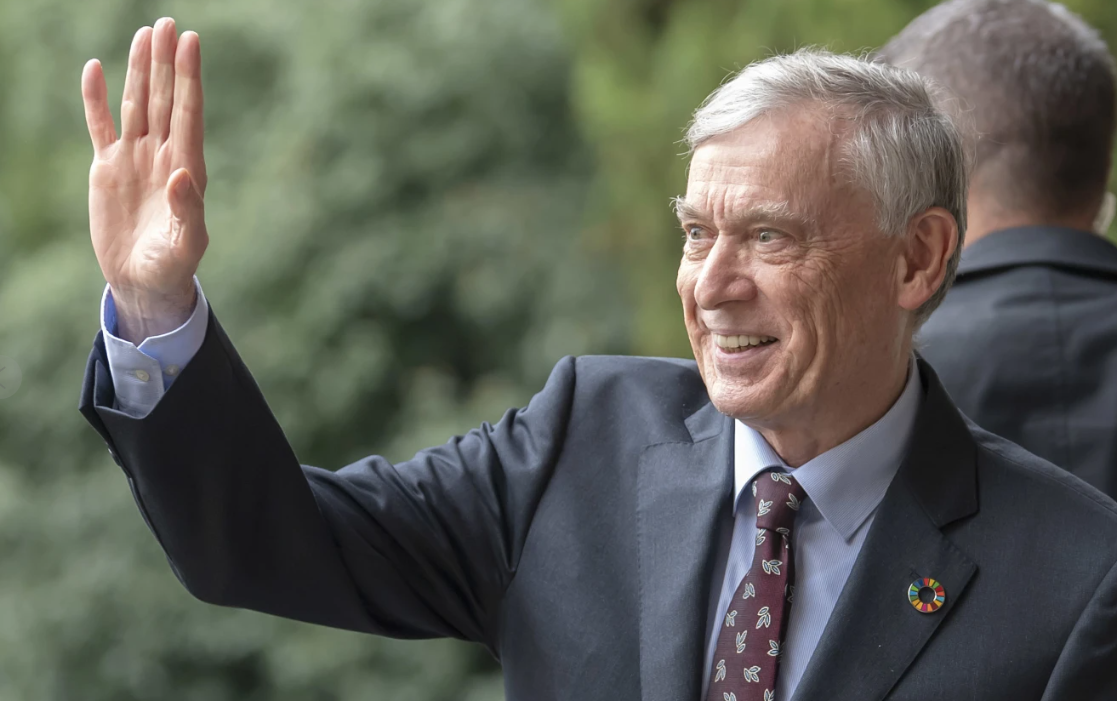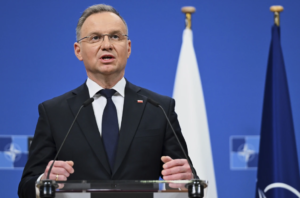Horst Köhler, a former head of the International Monetary Fund and former German president, has passed away at the age of 81. Köhler, who served as president from 2004 to 2010, died in Berlin on Saturday morning after a brief illness, with his family by his side, according to a statement from current German President Frank-Walter Steinmeier’s office.
Before becoming president, Köhler was largely unknown to the German public and had no prior involvement in frontline politics. His presidential candidacy was met with skepticism, highlighted by the German newspaper Bild’s headline, “Horst Who?”
However, Köhler gained significant popularity during his time in office, partly because of his image as an outsider to the political establishment. He sometimes took a stand against government decisions, notably refusing to sign certain bills into law due to constitutional concerns. His independent stance occasionally put him at odds with the government of Chancellor Angela Merkel, despite her being the one to nominate him for the largely ceremonial presidential role, which also carries significant moral authority.
Köhler was elected president before Angela Merkel came to power, during a period when Germany was grappling with labor market reforms and cuts to its welfare state. He emphasized that Germans should not become complacent with past successes, expressing a strong belief that Germany had the resilience and capacity for change.
In July 2005, Köhler agreed to dissolve the German parliament and call for an early election, giving then-Chancellor Gerhard Schröder a chance to seek a mandate. Köhler warned that Germany was facing “giant challenges” and that “our future and the future of our children” were at risk.
Merkel eventually took power, but her early lead in the polls nearly vanished after her emphasis on deeper reforms alienated voters. In later years, Köhler focused less on economic change and became a strong critic of financial markets during the banking and economic crisis, calling them a “monster” that had yet to be tamed.
After facing criticism for seeming to have little to contribute following his re-election, Köhler resigned abruptly on May 31, 2010. He cited backlash over a radio interview he gave after visiting German troops in Afghanistan. In the interview, he suggested that for a country like Germany, which relies heavily on exports, military deployments could be “necessary… to defend our interests, such as free trade routes.”
Many interpreted this as a reference to Germany’s controversial mission in Afghanistan, although Köhler’s office later clarified he was actually talking about anti-piracy efforts off the coast of Somalia. Some speculated that this was not the true reason for his resignation, suggesting that Köhler had grown frustrated with the lack of support from Chancellor Merkel, which made his resignation a significant embarrassment for her.
In terms of foreign policy, Köhler received praise for his efforts to highlight the challenges faced by Africa. He also became only the second German president to address Israel’s parliament, the Knesset, where he expressed deep remorse for the Holocaust, saying, “I bow my head in shame and humility before the victims.”
Köhler also focused on strengthening ties with Germany’s eastern neighbor, Poland, making it his first foreign destination during both of his presidential terms. He expressed a desire for Poland to become as significant a partner to Germany as France.
Born on February 22, 1943, in Skierbieszow, Nazi-occupied Poland, Köhler was the son of ethnic German farmers from Romania. After World War II, his family fled to Germany, first to Leipzig in what became East Germany and later to West Germany in 1954.
Before becoming president, Köhler had an extensive career as a behind-the-scenes official. In the 1980s, he worked for over a decade in the Finance Ministry under Chancellor Helmut Kohl, who praised him as “a treasure” and relied on him for economic diplomacy. Köhler contributed to drafting the legal framework for Europe’s single currency, the euro, and played a significant role in the negotiations surrounding Germany’s reunification in 1990. He also served as the president of the European Bank for Reconstruction and Development.
In 2000, Köhler emerged as German Chancellor Gerhard Schröder’s backup candidate for the leadership of the International Monetary Fund (IMF). He gained American support after Berlin’s first nominee, Deputy Finance Minister Caio Koch-Weser, was rejected by the United States for being considered too inexperienced.
U.S. Treasury Secretary John Snow later praised Köhler’s time at the IMF, noting that he transformed the institution by enhancing transparency and developing better crisis prevention and management strategies.
Four years later, Merkel, then the leader of the opposition, surprised many by selecting Köhler as her choice for the German presidency. His election was secured through a parliamentary vote.
In a condolence letter to Köhler’s wife, Eva Louise, President Steinmeier expressed that many Germans would mourn his passing. He described Köhler as a highly respected and beloved figure who achieved significant accomplishments both for Germany and globally.
President Steinmeier wrote that it was Köhler’s approachability, infectious laughter, optimism, and strong belief in Germany’s strength and the creativity of its people that endeared him to so many. He also earned recognition for his frank, often uncomfortable speeches and admonitions.
Köhler is survived by his wife, Eva Louise, their daughter Ulrike, and son Jochen.













